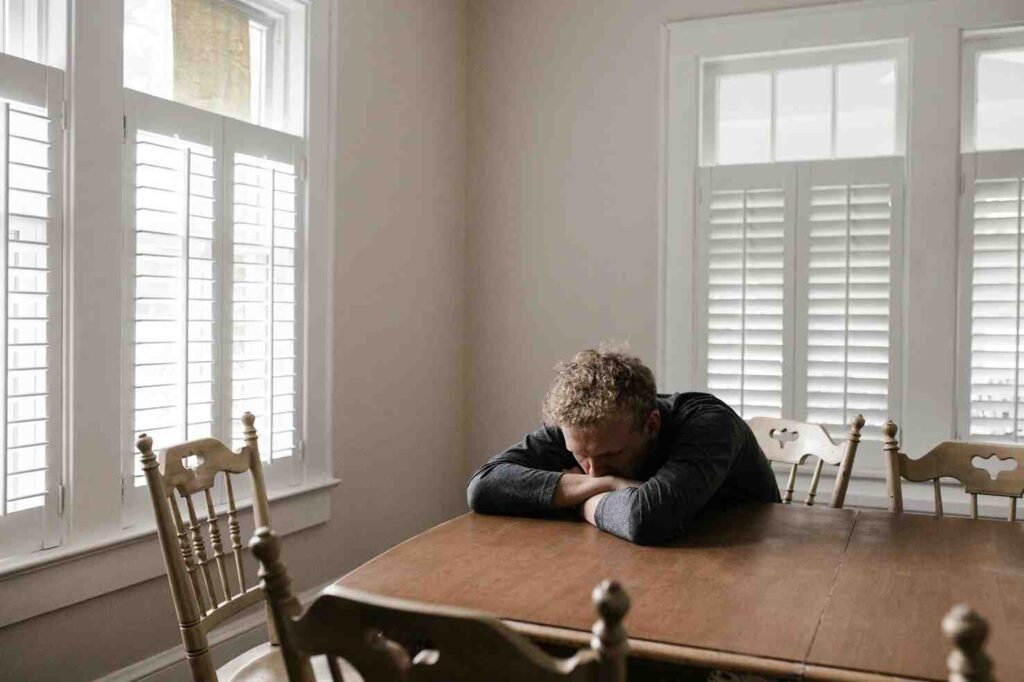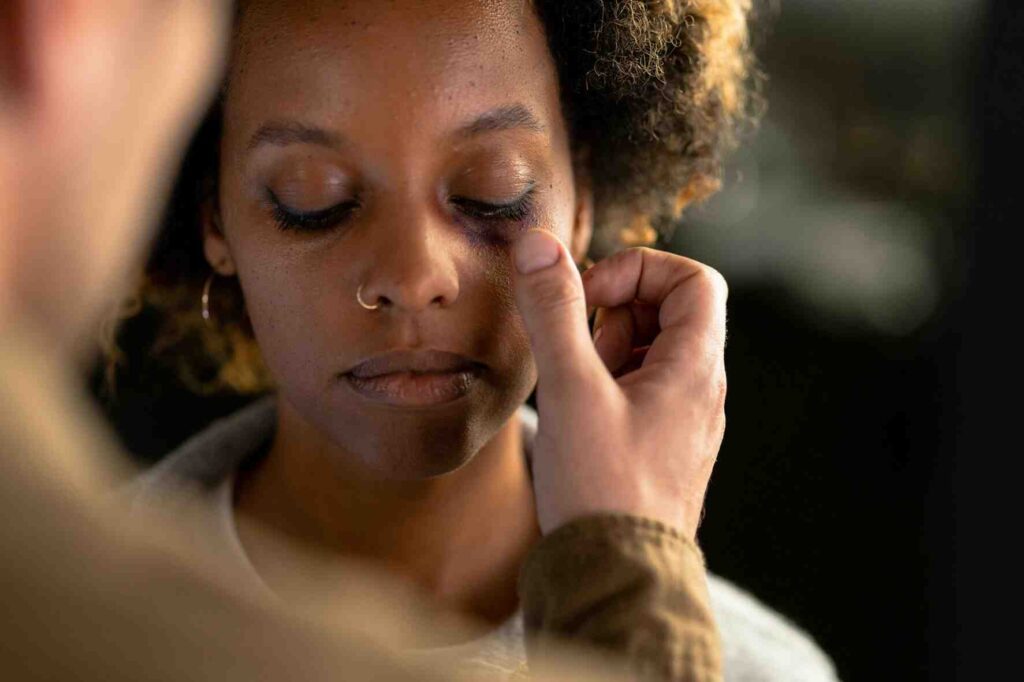Childhood trauma, encompassing experiences such as abuse, neglect, or witnessing traumatic events, can profoundly influence various aspects of an individual’s life. One of the most significant areas affected is sexual desire and arousal. In this article, we delve into the influence of childhood trauma on sexual desire and arousal, exploring the psychological and emotional repercussions that trauma survivors often encounter in their intimate relationships. By understanding these impacts, we can better support those who have endured such hardships in finding healing and fulfillment in their sexual lives.
Table of Contents
Exploring Different Types of Childhood Trauma: Understanding the Impact

Childhood, typically perceived as a time of innocence and wonder, can also be fraught with experiences that shape an individual’s life in profound ways. Childhood trauma encompasses a wide range of adverse events or circumstances that occur during a person’s formative years, leaving lasting imprints on their physical, emotional, and psychological well-being.
1. Physical Abuse
Physical abuse involves the intentional infliction of physical harm or injury upon a child by a caregiver or authority figure. This can include hitting, punching, kicking, burning, or otherwise causing bodily harm. Physical abuse often leaves visible signs of injury, such as bruises, welts, or broken bones, but can also result in less visible scars, including emotional trauma and psychological distress. Children who experience physical abuse may develop feelings of fear, helplessness, and mistrust, and may struggle with issues such as low self-esteem, aggression, and difficulty forming healthy relationships in adulthood.
2. Sexual Abuse
Sexual abuse entails any form of sexual activity or behavior imposed upon a child by an adult or older child. This can include sexual touching, fondling, molestation, rape, or exploitation for the purposes of pornography or prostitution. Sexual abuse is a deeply traumatic experience that can have long-lasting effects on a child’s sense of self, sexuality, and relationships. Survivors of sexual abuse may experience a range of emotional and psychological symptoms, including shame, guilt, anxiety, depression, and post-traumatic stress disorder (PTSD). They may also struggle with intimacy, trust, and sexual functioning in adulthood.
3. Emotional Abuse
Emotional abuse, also known as psychological or verbal abuse, involves the systematic belittling, demeaning, or manipulation of a child’s emotions, thoughts, or behaviors by a caregiver or authority figure. This can include verbal insults, threats, intimidation, rejection, or constant criticism. Emotional abuse can be just as damaging as physical or sexual abuse, leaving deep emotional scars that may persist into adulthood. Children who experience emotional abuse may develop feelings of worthlessness, inadequacy, and self-doubt, and may struggle with issues such as anxiety, depression, and low self-esteem.
4. Neglect
Neglect refers to the failure of a caregiver to provide for a child’s basic needs, including food, shelter, clothing, medical care, supervision, and emotional support. Neglect can be either physical, such as failing to provide adequate food or shelter, or emotional, such as ignoring a child’s emotional needs or failing to provide affection and support. Neglect can have profound and long-lasting effects on a child’s physical, emotional, and psychological development. Children who experience neglect may suffer from malnutrition, poor physical health, developmental delays, and attachment issues. They may also struggle with issues such as low self-esteem, depression, and difficulty forming healthy relationships in adulthood.
5. Witnessing Domestic Violence
Witnessing domestic violence involves exposure to physical, verbal, or emotional abuse between caregivers or other family members. This can include witnessing physical fights, verbal arguments, or acts of aggression or intimidation. Witnessing domestic violence can be traumatizing for children, even if they are not directly involved in the abuse. Children who witness domestic violence may experience feelings of fear, helplessness, and confusion, and may develop symptoms of trauma, including anxiety, depression, and PTSD. They may also struggle with issues such as low self-esteem, difficulty forming healthy relationships, and perpetuating cycles of violence in adulthood.
How Trauma Disrupts Sexual Desire and Arousal
1. Trust and Safety: Childhood trauma can shatter an individual’s sense of trust and safety, making it challenging to feel secure and comfortable in intimate settings. Survivors of trauma may struggle to let their guard down and open themselves up to vulnerability, hindering their ability to experience desire and arousal in sexual encounters.
2. Impact on Body Image and Self-Esteem: Trauma survivors may develop negative body image and low self-esteem as a result of their experiences. These feelings of inadequacy or self-consciousness can create barriers to experiencing sexual desire and arousal, as individuals may feel disconnected from their bodies or unworthy of pleasure.
3. Difficulty in Emotional Connection: Trauma can interfere with the formation of secure emotional connections, making it challenging for survivors to feel emotionally connected to their partners. Without a strong emotional connection, individuals may struggle to feel desired or aroused in intimate relationships, as emotional intimacy often serves as a catalyst for sexual desire.
4. Dysregulated Emotional Responses: Childhood trauma can lead to dysregulated emotional responses, such as anxiety, depression, or dissociation, which can interfere with the experience of sexual desire and arousal. Survivors may find it difficult to relax and be present in sexual situations, as their minds may be preoccupied with intrusive thoughts or memories related to past trauma.
5. Avoidance of Sexual Stimuli: Trauma survivors may engage in avoidance behaviors as a way of coping with their distress, including avoiding sexual stimuli or situations that trigger memories of past trauma. This avoidance can further diminish sexual desire and arousal, as individuals may associate sexual activity with feelings of fear or discomfort.
Related Article: Recovering from Sexual Trauma Through EMDR
Navigating the Impact of Childhood Trauma on Sexual Desire and Arousal

1. Seeking Support: Trauma survivors experiencing difficulties with sexual desire and arousal can benefit from Therapy for trauma offers a safe and supportive space for individuals to explore their experiences, process their emotions, and work towards healing and recovery. Through evidence-based approaches such as trauma-focused cognitive behavioral therapy (TF-CBT), Eye Movement Desensitization and Reprocessing (EMDR), and dialectical behavior therapy (DBT), therapists help clients develop coping skills, regulate their emotions, and reframe negative beliefs about themselves and their experiences.
2. Building Trust and Safety: Establishing trust and safety in intimate relationships is crucial for trauma survivors to feel comfortable exploring their sexuality. Partners can support survivors by creating a safe and nurturing environment where open communication, empathy, and consent are prioritized.
3. Developing Emotional Intimacy: Cultivating emotional intimacy can help trauma survivors feel more connected to their partners and more comfortable expressing their desires and needs. Engaging in activities that promote emotional closeness, such as deep conversations, shared experiences, and acts of affection, can strengthen the bond between partners and enhance sexual desire and arousal.
4. Exploring Sensate Focus: Sensate focus exercises, which involve gradual, non-genital touch and exploration of the body, can help trauma survivors re-establish a sense of safety and connection in intimate settings. These exercises prioritize pleasure and relaxation, allowing individuals to explore their bodies and sensations without pressure or expectations.
5. Self-Exploration and Self-Compassion: Encouraging self-exploration and self-compassion can help trauma survivors reconnect with their bodies and cultivate a positive relationship with their sexuality. Engaging in practices such as mindfulness, self-care, and body acceptance can promote healing and enhance sexual desire and arousal.
Conclusion
Childhood trauma can have profound and far-reaching effects on an individual’s ability to experience sexual desire and arousal. By understanding the complexities of trauma and its impact on sexuality, trauma survivors and their partners can work together to navigate the challenges of intimacy with compassion, empathy, and resilience. Through seeking support, building trust and safety, fostering emotional intimacy, and engaging in self-exploration, trauma survivors can reclaim agency over their sexuality and cultivate deeper connections with themselves and their partners.
To learn more about how CICC therapists can help you improve intimacy and address trauma or to schedule a consult please visit us at centericc.com or call 443-835-6991



